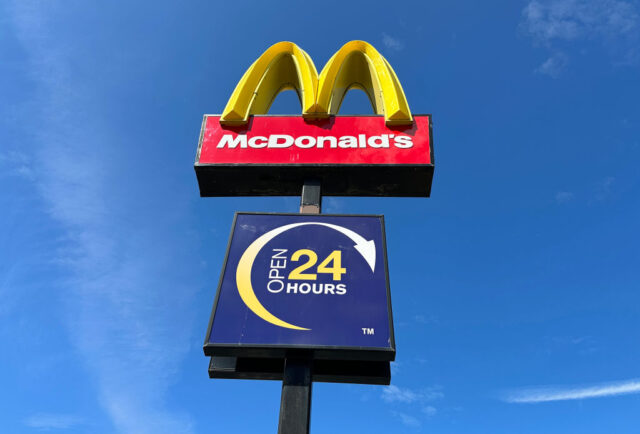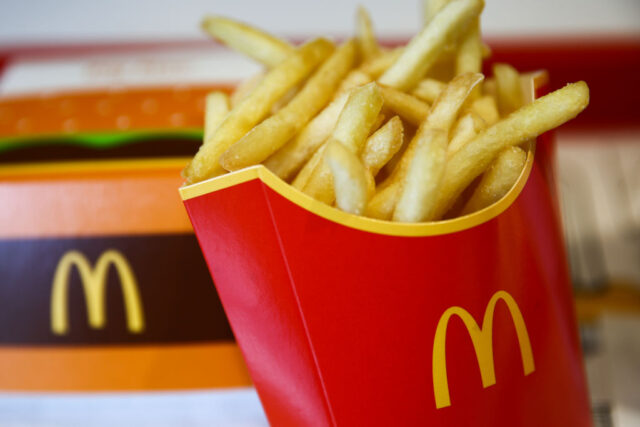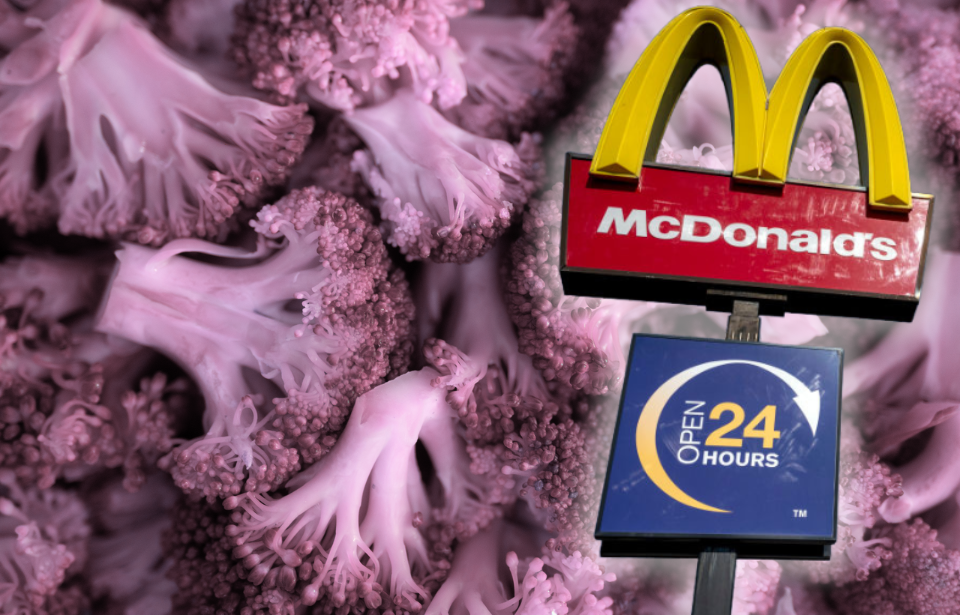Picture this: it’s November 2014, and sales are down for your multi-billion-dollar fast-food company. There’s immense pressure from the public to change your kid’s menu, to help combat a growing wave of childhood obesity, which, according to a study that was published by the National Library of Medicine, could be, in part, attributed to frequent fast-food consumption. What do you do? Well, if you’re McDonald’s, you spitball ideas to help answer that very question. Read on to learn more.
Bubblegum-flavored broccoli?

According to Statista, McDonald’s earned a whopping $27.44 billion in sales in 2014, despite it being the fast-food company‘s worst year in decades. With that much money on the line, most will come up with some pretty crazy ideas – and that’s exactly what McDonald’s did.
As the company is “always looking for new food innovations and recipes that will appeal to our customers,” it decided to go off in a new direction by making broccoli sweeter, just like bubblegum. However, it turned out that making the vegetable sweeter simply confused the young focus group who’d been called in to test the product.
As reported by Business Insider, McDonald’s CEO Donald Thompson was asked what the company was doing to provide healthier options for children. That’s where this bizarre story pops up, with Thompson outlining the changes the company had made to its iconic Happy Meal, including cutting down the portion size of fries and adding healthier options, such as fruit and yogurt.
During his presentation, the oddly-flavored broccoli was briefly mentioned, with Thompson saying, “It wasn’t all that.” This is fairly easy to believe. After all, if you’ve ever cooked broccoli, you’ll know that it has a powerful flavor.
McDonald’s wasn’t the first to try and disguise the taste of veggies

Interestingly, McDonald’s wasn’t the first company to try and disguise the taste of veggies with sweet flavors. According to The Independent, British frozen food company Iceland came up with a similar idea in 1997. It was an effort to make vegetables seem more attractive to children who various studies had suggested weren’t getting enough vital nutrients in their diet.
Iceland came up with the “Wacky Veg” program, which, needless to say, didn’t turn out well.
The idea was that by pulling a bag of chocolate-flavored carrots or cheese and onion-flavored cauliflower from the freezer, parents could tempt their kids to eat vegetables. Unfortunately, young taste testers found the products not only looked and tasted bad, but they were also soggy and squishy – not exactly a glowing endorsement.
Why would McDonald’s be worried about children’s health?

The next logical question would probably be why McDonald’s was worried about this issue. It’s the largest fast-food company in the world, selling more products than the majority of its competitors combined.
The biggest push behind this wave can be attributed to former US First Lady Michelle Obama, who decided to tackle the problem of children’s health after she adjusted her own family’s diet.
Obama is quoted by Future of Personal Health as saying, “As we made these changes and I learned more about nutrition, I found out that childhood obesity rates in the U.S. had tripled over the last three decades and about 1 in 3 kids is overweight or obese.”
More from us: The Enigmatic Tale of Pablo Escobar’s Wife, Maria Victoria Henao
As well as initiating the “Let’s Move!” program, Obama started her crusade against the fast-food industry, which led to the goofy choice of trying to make bubblegum-flavored broccoli.
